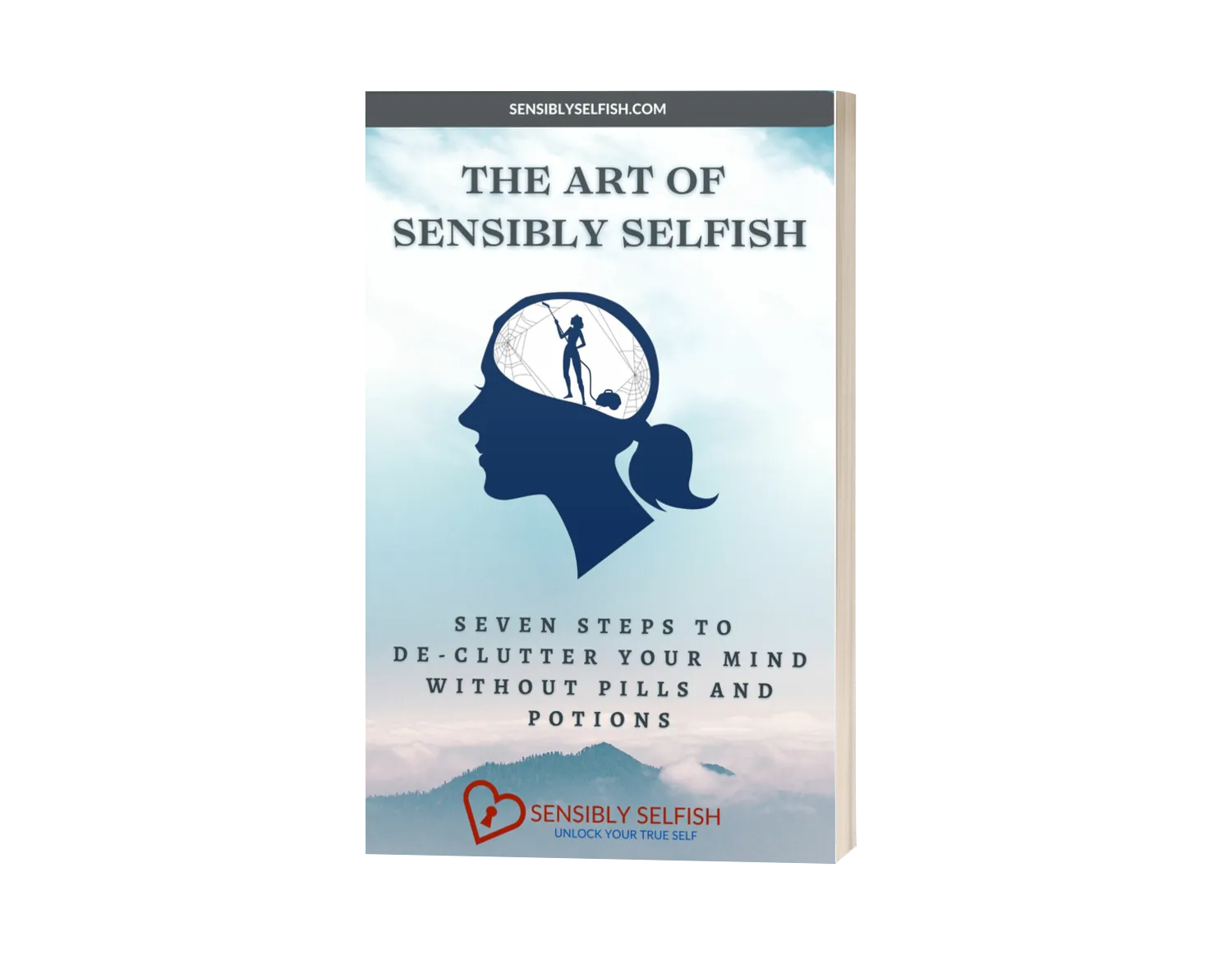Rising Above Narcissistic Dynamics
Unveiling the Power Within
[Toc]
Toxic Bonds
The world of relationships can be a journey filled with joy, growth, and shared experiences. For women over 45, relationships often come with a newfound sense of self-assurance and wisdom, gained through life's ups and downs. However, along this path, some may find themselves entangled with partners who possess narcissistic traits, creating a unique set of challenges that can profoundly impact emotional well-being and personal growth.
The focus of this post is to shed light on the complexities of relationships and the specific issue of being involved with a narcissistic partner. Narcissism, characterized by an excessive preoccupation with oneself and a lack of empathy for others, can significantly alter the dynamics of a relationship, leaving the other partner feeling drained, emotionally manipulated, and questioning their own worth.
We will delve into the emotional toll of being with a narcissistic partner and explore the potential long-term effects on self-esteem and mental health. Coping strategies and self-care practices will also be discussed to empower women to prioritize their emotional well-being and set healthy boundaries.
 Understanding narcissism is paramount to recognizing its presence in a partner. It's essential to differentiate between healthy self-esteem and the self-centered behavior exhibited by narcissists, which often manifests as a desperate need for admiration, an unwillingness to acknowledge flaws, and a tendency to exploit others for personal gain.
Understanding narcissism is paramount to recognizing its presence in a partner. It's essential to differentiate between healthy self-esteem and the self-centered behavior exhibited by narcissists, which often manifests as a desperate need for admiration, an unwillingness to acknowledge flaws, and a tendency to exploit others for personal gain.
Narcissism is not just a masculine issue, women too can have narcissistic traits. Although this post focuses on aiding women, the same information can be applied to anyone struggling with a narcissistic partner.
Women over 45 may find themselves in relationships with narcissists for various reasons, including past experiences that make them susceptible to such partners or the subtle and gradual development of narcissistic traits in their significant others over time. Recognizing the warning signs and understanding how these traits can manifest in a relationship is crucial for maintaining emotional well-being.
By understanding the dynamics at play, seeking support, and making informed decisions, you can embark on a path of empowerment and growth, reclaiming your self-confidence and finding the happiness and fulfillment you deserve. Remember, you are not alone in this journey.

Narcissism Intricacies
In the realm of relationships, understanding the intricacies of narcissism is paramount to recognizing its presence in a partner. Narcissism is not simply an inflated sense of self-importance but rather a complex personality trait that can significantly impact interpersonal dynamics. At its core, narcissism is marked by an excessive preoccupation with oneself, an insatiable need for admiration, and a lack of empathy for others.
Narcissists often project an air of charm and confidence, drawing others towards them like moths to a flame. Their initial magnetism can make it challenging to detect their self-centered tendencies, especially in the early stages of a relationship. However, as time progresses, these traits may become more apparent, and the partner may find themselves questioning the authenticity of the connection.
It is important to differentiate between healthy self-esteem and narcissism, as the former involves a balanced sense of self-worth and the ability to both acknowledge one's strengths and accept imperfections. On the other hand, narcissists demonstrate an exaggerated sense of self-importance, believing they are entitled to special treatment and admiration, often at the expense of others' well-being.
In a relationship with a narcissist, one may notice a pattern of manipulation, gaslighting, and emotional exploitation. They may constantly seek validation and become resentful when their needs are not met, putting their partner's feelings and desires aside. As the relationship progresses, the partner may find themselves catering to the narcissist's demands while gradually losing their own sense of identity and autonomy.

Noticing Narcissistic Traits in Your Partner
Recognizing narcissistic traits in a partner helps to safeguard emotional well-being and maintain a healthy relationship. Early identification of these behaviors can prevent the gradual erosion of self-esteem and autonomy, which often occurs in relationships with narcissists.
Red Flags and Early Warning Signs
At the beginning of a relationship, the excitement of a newfound connection may overshadow certain warning signs. Being attentive to potential red flags: signs of excessive self-centeredness, constant need for praise, and an inability to empathize with others' feelings. Narcissists may also display an unwillingness to take responsibility for their actions and may quickly shift blame onto their partner.
Reflecting on Relationship Dynamics
Self-reflection is an essential tool for women over 45 to assess the dynamics of their relationships. Consider whether the partnership feels balanced, with both partners contributing equally to emotional support and decision-making. In a relationship with a narcissist, there may be a noticeable power imbalance, with the narcissistic partner seeking to control and manipulate the other.
Impact on Emotional Well-being
Being in a relationship with a narcissist can take a toll on one's emotional health. Partners may experience a range of emotions, from confusion and frustration to feelings of worthlessness. Gaslighting, a common tactic employed by narcissists, can make the partner question their perceptions and reality, leading to increased anxiety and self-doubt.
Gaslighting is a manipulative tactic commonly employed by narcissists in relationships, and its insidious nature can have a profound impact on the partner's emotional well-being. The term "gaslighting" originates from a play and subsequent movie titled "Gas Light," in which the protagonist's husband attempts to convince her that her perceptions of reality are false.
In the context of relationships with narcissists, gaslighting involves the gradual undermining of the partner's beliefs, memories, and judgments. The narcissistic partner may deny past conversations or events, distort the truth, and even make the partner doubt their sanity. Over time, the victim of gaslighting may lose confidence in their ability to discern reality and may become increasingly reliant on the narcissist for validation and approval.
Recognizing gaslighting behaviors is essential to break free from the toxic cycle and regain a sense of self-trust and confidence. Seeking support from friends, family, or a therapist can provide validation and help untangle the web of deception, empowering individuals to reclaim their truth and emotional autonomy.

The Emotional Toll of Being with a Narcissist
Being in a relationship with a narcissist can exact a heavy emotional toll, impacting the sense of self-worth and overall well-being. At the outset, the allure of a charismatic and charming partner may seem enticing, but over time, the emotional challenges become apparent.
Emotional Rollercoaster
Navigating a relationship with a narcissist often feels like an emotional rollercoaster ride. The partner may experience extreme highs when the narcissist showers them with love and attention, followed by sudden and intense lows when the narcissist withdraws or becomes critical. This emotional inconsistency leaves the partner constantly uncertain about where they stand and what to expect from the relationship.
Erosion of Self-Esteem
Narcissists thrive on control and superiority, and they may belittle or demean their partners to maintain their perceived dominance. Continuous exposure to such behaviors can lead to a gradual erosion of self-esteem in the partner. Constant criticism and devaluation can make them doubt their abilities and worth, causing them to question their own judgment and decision-making.
Emotional Manipulation and Guilt
Narcissists are skilled at emotional manipulation, playing on their partner's empathy and desire to please. They may use guilt as a tool to control their partner's actions and decisions, making them feel responsible for the narcissist's emotions and behaviors. This emotional manipulation can leave the partner feeling trapped and unable to prioritize their own needs and desires.
Isolation and Alienation
As the narcissistic partner seeks to maintain control, they may isolate their partner from friends and family, leaving them with limited support systems. This isolation can intensify the emotional dependence on the narcissist and increase the difficulty of breaking free from the toxic relationship.

Coping Strategies and Self-Care
Dealing with a narcissistic partner can be emotionally draining, but implementing coping strategies and prioritizing self-care can empower women to regain control of their lives and emotional well-being.
Self-Reflection and Seeking Support
Engaging in self-reflection can help individuals recognize patterns of behavior and emotions within the relationship. By acknowledging their feelings and experiences, women can gain clarity about the impact of their narcissistic partner in their lives. Seeking support from trusted friends, family, or a therapist can provide an external perspective and emotional validation during this challenging time.
Setting and Maintaining Boundaries
Establishing clear and firm boundaries is crucial when dealing with a narcissistic partner. It is essential to communicate personal limits and expectations and to consistently enforce those boundaries. This empowers individuals to protect their emotional space and avoid being manipulated or overwhelmed by the narcissist's demands.
Embracing Self-Care Practices
Practicing Sensibly Selfish self-care is a powerful way to nurture emotional well-being. Engaging in activities that bring joy, relaxation, and a sense of fulfillment can counteract the negative impact of the relationship. Whether it's spending time in nature, pursuing hobbies, or dedicating time to personal growth, self-care is a vital tool for building resilience and maintaining a positive outlook.
Establishing a Support Network
Building a support network is essential for those dealing with a narcissistic partner. Connecting with others who have experienced similar challenges can provide validation and a sense of community. Online forums, support groups, or therapy sessions specifically tailored to individuals in relationships with narcissists can be invaluable sources of guidance and encouragement.
Prioritizing Personal Growth
Although challenging, being in a relationship with a narcissist can present opportunities for personal growth and resilience. Engaging in therapy or counseling can help individuals explore their strengths, boundaries, and coping mechanisms, fostering personal development and self-empowerment.

What to Do if You Are a Concerned Family Member or Friend
If you are a family member or friend who suspects that someone you care about is involved with a narcissistic partner, offering support and understanding can be vital in helping them navigate this challenging situation. Here are some steps you can take:
Listen Non-Judgmentally
Approach the individual with empathy and a non-judgmental attitude. Let them know that you are there to listen and support them without imposing your opinions or solutions. Allow them to express their feelings and experiences openly.
Educate Yourself about Narcissism
Educating yourself about narcissism and its effects on relationships can provide you with valuable insights. This knowledge can help you better understand the dynamics at play and offer informed support, if asked, to your loved one.
Express Concern and Offer Resources
Gently express your concerns about their well-being and the relationship. Share resources such as books, articles, or support groups that focus on narcissistic relationships, allowing them to access information and guidance on their own terms.
Encourage Professional Help
Suggest the option of seeking professional help, such as individual therapy or counseling. A qualified therapist can provide a safe space for the individual to explore their feelings, set boundaries, and work through the challenges of the relationship.
Avoid Pressuring or Dictating
Respect the individual's autonomy and avoid pressuring or dictating decisions. Understand that leaving a narcissistic partner can be a complex and challenging process. Offer your support unconditionally, without attaching expectations to their choices.
Be Patient and Supportive
Dealing with a narcissistic partner is emotionally taxing, and healing takes time. Be patient and supportive throughout the process, reassuring your loved one that you are there for them no matter what.
Stay Connected and Available
If possible, maintain regular communication and stay connected with your loved one. Let them know that you are available to listen and support them whenever they need it.

Seeking Professional Help
Seeking professional help, someone neutral can be instrumental in creating support and a way forward. Here are some essential aspects to consider:
Explore the Benefits of Therapy
Couples therapy can be an effective way for partners to address relationship issues, improve communication, and gain a deeper understanding of each other's perspectives. However, it's essential to recognize that traditional couples therapy may not always work well with a narcissistic partner.
In cases where the narcissist is resistant to change or lacks the empathy needed for effective therapy, individual therapy for the non-narcissistic partner becomes particularly valuable. Individual therapy provides a safe space for emotional processing, setting boundaries, and developing coping strategies to navigate the complexities of the relationship.
Address the Challenges
Convincing a narcissistic partner to attend therapy can be a daunting task. Due to their resistance to introspection and unwillingness to acknowledge flaws, they may deny the need for therapy or shift blame onto their partner.
In such cases, it's essential to focus on the individual's well-being and encourage them to prioritize their emotional health through individual therapy. Helping your loved one understand that therapy can offer tools for personal growth and self-empowerment might resonate more with them than attempting to change the narcissistic partner's behavior directly.
Finding Qualified Therapists
Finding a therapist experienced in working with narcissism creates effective support. Look for resources such as psychology directories, online therapist platforms, or referrals from mental health professionals. Particularly focus on therapists who specialize in couples therapy or individual therapy with a focus on narcissistic relationships.
It's essential to feel safe and comfortable and for the therapist to understand the complexities of dealing with a narcissistic partner and have experience in helping individuals regain their sense of self-worth and emotional well-being. Be patient with the process and keep going until there is a fit in character, confidence, and communication.

The Decision to Stay or Leave
Deciding whether to stay in or leave a relationship with a narcissistic partner is an intricate and emotionally charged process. It involves grappling with complex emotions, reflecting on the history of the relationship, and envisioning the potential for personal growth and happiness. Here are some important considerations to navigate this crucial decision:
Seek Outside Guidance
Remaining in a relationship with a narcissistic partner often involves a continuous cycle of hope, disappointment, and emotional upheaval. The partner may experience moments of connection and charm, leading them to believe change is possible. However, the reality of a narcissistic partner's persistent patterns of self-centered behavior and emotional manipulation cannot be ignored.
The fear of being alone, financial concerns, and societal pressures can further complicate the decision-making process. Exploring the root causes of attachment to the relationship and seeking guidance from therapists or support groups can help untangle the complexities.
Putting Oneself First
In relationships with narcissists, the partner's needs and desires often take a backseat to the narcissist's demands. Women must recognize the significance of prioritizing their well-being and reclaiming their sense of self. Embracing self-compassion and acknowledging their worthiness of love and respect can empower them to make decisions that serve their emotional health and long-term happiness.
Make Informed
When contemplating whether to stay or leave, it is essential to make informed decisions that prioritize emotional well-being. Seeking the support of a therapist can provide objective guidance and a safe space to explore thoughts and feelings.
Setting clear boundaries and expectations for the relationship can also serve as a barometer for gauging whether the narcissistic partner is willing to respect and work within those limits. Evaluating the overall impact of the relationship on one's emotional health, self-esteem, and personal growth can offer valuable insight into the best path forward.

Empowerment and Growth
Empowerment and personal growth are powerful pathways for women to reclaim their lives. While the journey to healing after a narcissistic relationship may be challenging, it presents transformative opportunities for emotional liberation and self-discovery. Here are essential aspects to encourage empowerment and growth:
Self-Confidence and Sense of Self-Worth
The emotional toll of being with a narcissistic partner can leave women feeling depleted and questioning their value. Empowering them to rebuild self-confidence and embrace their self-worth is essential. Engaging in positive affirmations, self-compassion, and self-care practices can be instrumental in nurturing a stronger sense of self and cultivating a newfound appreciation for their unique strengths and qualities.
Potential for Personal Growth and Resilience
Despite the challenges, being in a relationship with a narcissistic partner can be a catalyst for profound personal growth and resilience. As women navigate the complexities of the relationship, they often develop a deeper understanding of their needs, boundaries, and desires. They can learn to set boundaries, assert themselves, and reclaim their agency, ultimately emerging as stronger and more resilient individuals.
Sharing Stories
Inspiring stories of women who have triumphed over narcissistic relationships can serve as beacons of hope and motivation. Sharing these narratives highlights the possibilities for positive change and happiness beyond a toxic relationship. These stories emphasize that healing is achievable and that, with time and self-empowerment, women can create a life filled with joy, fulfillment, and healthy relationships.

Inspirational Story - A Journey of Rediscovery: Sharon's Triumph Over Adversity
Once upon a time, there was a woman named Sharon, who, after a tumultuous divorce, decided to embark on a soul-searching adventure in the enchanting Caribbean. It was amidst the sun-kissed beaches and azure waters that she found solace and a newfound sense of freedom. As fate would have it, she also found love in the eyes of a charming Frenchman named Pierre. Captivated by each other's spirits, they decided to start a new chapter of their lives together and settled down in picturesque France, a world away from Sharon's roots.
The bliss of love and the thrill of a new beginning consumed Sharon's thoughts, and her family heard from her less and less. As the couple found comfort in their secluded life, miles away from familiar faces, the once-frequent calls and messages dwindled into an unsettling silence. The family worried, but they hoped Sharon was simply reveling in her newfound happiness.
One fateful night, the sound of the phone pierced through the silence, bringing with it a cry for help. On the other end of the line, a trembling voice, barely recognizable, pleaded for support. Fear and uncertainty gripped the hearts of her family as they listened to her tearful confessions of distress.
Uncertain of how to proceed, they sought advice and support from friends, but the next morning, the call for help was vehemently denied. The family was left in a state of confusion, wondering if they had misunderstood, or if fear had created the silence.
In the days that followed, Sharon's family decided to act with love and compassion, understanding that reaching out during difficult times can be a delicate matter. They sent her messages of unwavering support, reminding her that they were always there for her, no matter the circumstances. Their words were like a beacon of light, illuminating the darkness she seemed trapped within.
As the weeks turned into months, Sharon gradually found the courage to confide in her family, revealing the truth behind that drunken call. It was a call born from a moment of vulnerability, a plea for help that was then masked by denial and fear of judgment. In their love and understanding, Sharon's family became her pillar of strength, the foundation on which she rebuilt her sense of self and rediscovered her worth.
With the support of her family, Sharon sought professional help. She followed through with suggestions: quietly putting together an emergency leaving bag, noting times of gaslighting and negative behavior in a locked secret journal app on her phone, and making sure she had some cash and a safe place to go. Each piece of the puzzle gave her more confidence to make a choice. One day she just left, without a word. She deleted her online presence got rid of her digital trail and went cold turkey on communication with Pierre.

Today, Sharon continues to delve into her journey of self-discovery. She has learned to embrace her vulnerabilities and navigate the complexities of her emotions. With her newly fought for self-confidence, she was not only able to leave the relationship, she emerged from the shadows, stronger and wiser. Sharon now has a newfound appreciation for herself and the power and importance of staying connected to her roots.
[contact]
Red Flags and Toxic Bonds No more
When you recognize red flags in your relationships you are empowered to make informed decisions. Seeking support, and creating coping strategies, self-care, self-empowerment, and self-discovery will lead to resilience and ultimately a happier life beyond toxic bonds.
As survivors of narcissistic relationships like Sharon emerge, with the strength to triumph over adversity and rediscover their worth, we are reminded that we too deserve to embrace authenticity and find happiness on our terms.









